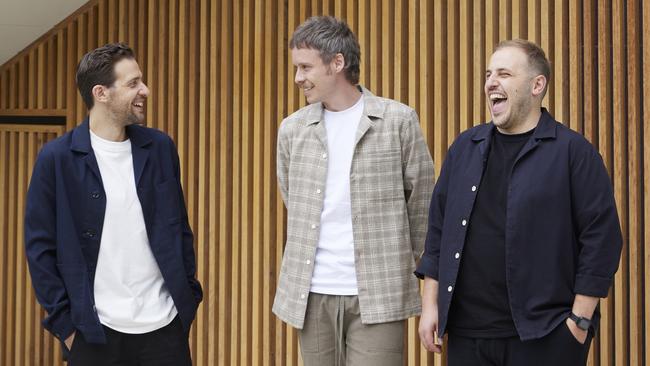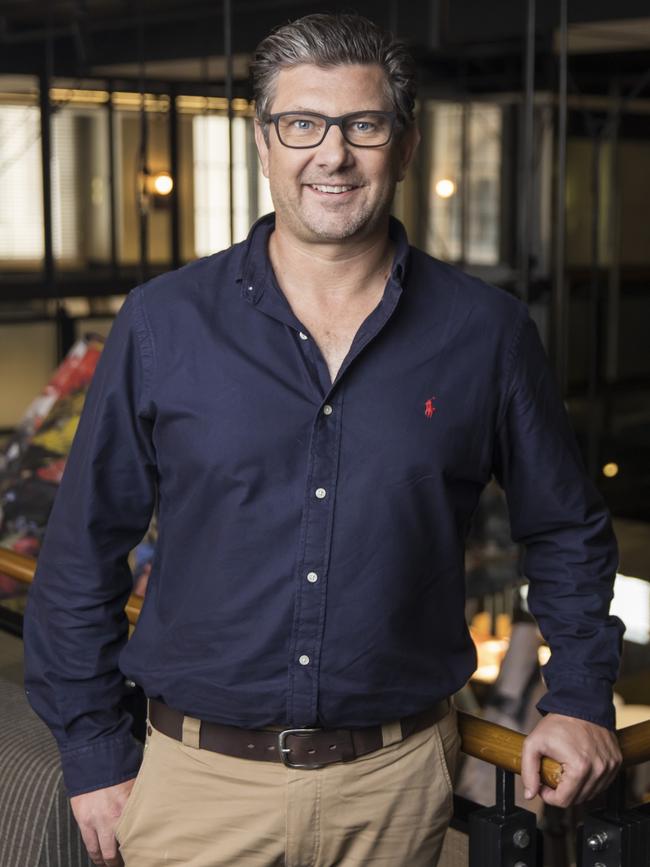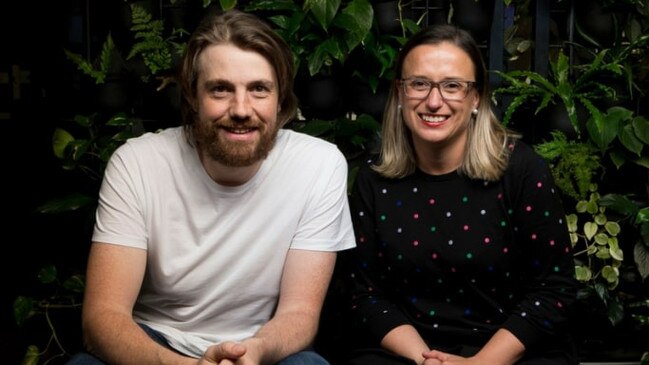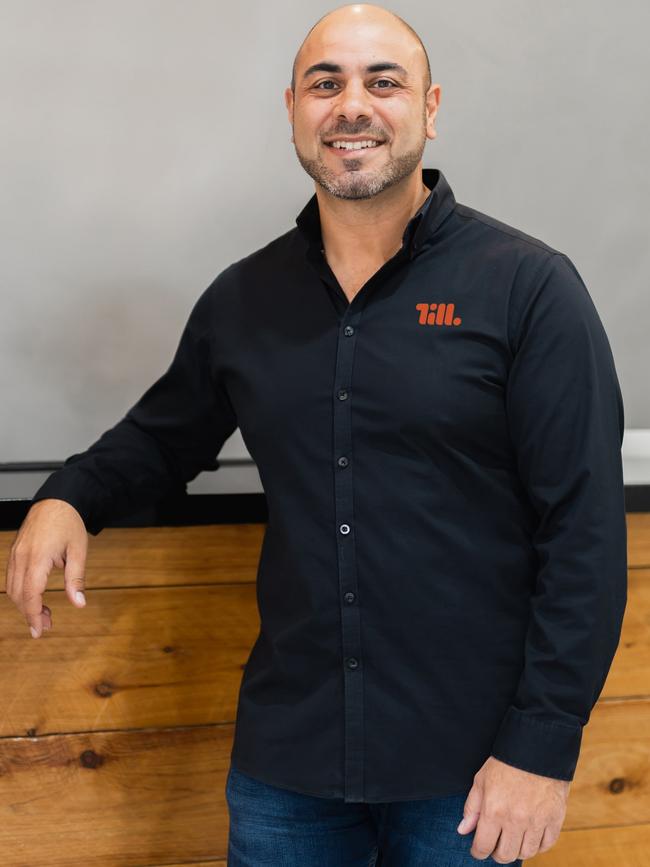Australia’s ‘soonicorns’ who became unicorns, and those who fell off the horse
A handful of Australian tech start-ups were all set for unicorn status, but not all of them could withstand the market turbulence of the past year.

Five Australian tech start-ups had the world ahead of them early in 2022 when each was slated to be the next tech unicorn.
As valuations were slashed, capital became scarce and not all tech companies could withstand the turbulence.
Several high-flying start-ups are expected in coming months to raise funds at a substantial discount to their sky-high valuations, amid a lacklustre demand for public listings, while others will shut down entirely.
One year on, here’s which start-ups made it to unicorn status in the last 12 months, those who didn’t and what happened in between.
Social media giant Linktree, which offers a ‘link in bio’ platform allowing content creators, journalists and businesses to host links to multiple websites on a single site, was slated to reach unicorn status in January last year.
By March, it had hit that goal with a raise of $150m, which brought its total valuation to $1.78bn.
Leading that raise was Index Ventures, a 25-year-old venture capital fund with offices in New York, London and San Francisco.
Partner Georgia Stevenson said one of the reasons it had backed the start-up was its dominance in the creator economy – a term describing the space in which influencers and content creators produce content including images, video and audio which is monetised via affiliate marketing, paid sponsorships and brand deals.
“We’ve always been big believers in the creator economy and how powerful it is to arm the emerging creator class with better tools,” she said.
Ms Stevenson, who is based in London, said the conversation with Linktree began over LinkedIn.
Linktree had come up with a solution that served so many businesses and creators who before had to constantly update the link in their Instagram bio, she said.
“It was so rare to see the scale that they had gotten to, but also just the size of the following that some of their users had. They didn’t have to pay celebrities to use their product or push product placements because their product was really serving a need,” she said.
Like many other local start-ups amid the pandemic, Linktree went through a round of cuts, laying off 17 per cent of its workforce, or about 50 workers.
Integrated payments and financial services platform Zeller was another business slated to reach unicorn status and did so within the first few months of 2022.
Zeller co-founder Ben Pfisterer, a former Square managing director and NAB and Visa executive, brought the business to a $1.1bn valuation following a $100m capital raise led by US-based venture capital firm Headline. Other backers include industry superannuation fund Hostplus and Square Peg, Addition and Spark Capital.
Similar to Ms Stevenson’s comments on Linktree, Headline partner King Goh, an Australian based in San Francisco, said Zeller’s “exemplary growth” was one of the reasons the firm became a backer.
“Ben and Dom are very pedigreed operators in this FinTech and financial services ecosystem. There are very few Australians with that level of pedigree and experience,” he said.
“But what I was really impressed by was both of their abilities to clearly identify the opportunities to disrupt the Australian business banking ecosystem and their very clear plan around how it is they were going to achieve it.”
Zeller struck 25,000 merchant customers in November last year, up from the 10,000 it had late in 2021.

The business also opened a second Sydney office as it increased its staff by about 60 per cent, up to 212 from 137 in January last year. Other staff work out of Ukraine, India and The Philippines.
Mr Pfisterer said Zeller had benefited from businesses scrutinising their costs amid the pandemic and shopping for cost-effective banking solutions.
“What we found, and it was quite strange, was that for the first time a lot of business owners actually put a microscope on their operations and started realising that they need to optimise the way they run their business,” he said.
While many businesses had come directly to Zeller via the start-up’s website, others arrived via a partnership with Officeworks.
Similar to Linktree and Zeller, HR start-up Employment Hero, which offers people management and payroll tools within a single platform, hit unicorn status early in 2022.
The business was valued at $1.25bn in February following a $180m raise led by SEEK Investments, OneVentures and AirTree Ventures.
Around the same time, Employment Hero finished its acquisition of KeyPay, a cloud-based payroll platform of which it was a shareholder.

Chief executive Ben Thompson said Employment Hero expected strong revenue growth to come.
“The hard work we’ve put into building our brand in our new markets – New Zealand, Singapore, Malaysia and the UK – is paying off, and we expect to see our offshore revenues more than double during 2023,” he said.
The business was also looking to develop tools for jobseekers and tools to identify workplace benefits.
Brighte, a start-up dubbed the ‘Afterpay for solar’, was on track for unicorn status in 2022 before it laid off 15 per cent of staff in June.

The business, which is backed by Atlassian co-CEO Mike Cannon-Brookes and Grok Ventures, closed a $100m Series C raise late in 2020. In late 2021, it hit $1bn worth of applications through a zero-interest buy now, pay later scheme taken up by more than 80,000 Australian households.
Asked if it Brighte had reached unicorn status, a spokesman said the start-up did not comment publicly on its valuation.
Sydney-based fintech Till Payments, a business founded in 2012 that many had touted to disrupt banks with a single-source payment solution, swung the axe this month as it laid off the same number of staff the business had in September 2021 – about 120 — when CEO Shadi Haddad first outlined massive growth plans after raising $110m.

Till had secured backing from prominent investors and funds amid the pandemic including Akuna Capital, Avenir Growth, Regal Funds Management and Woodson Capital. But it had also “been overinvesting in expansion”, a move which led to the restructure announced by Mr Haddad this week.
“We aren’t immune to the headwinds of the global inflationary pressure and economic contraction. Unfortunately, we have needed to take decisive action to mitigate these headwinds and align our strategy to a more sustainable growth model for the longevity and success of our business,” he said.
Soonicorns
Octopus Deploy
The Brisbane-based firm, that acts as middleman between software developers and the code they deploy into data centres, was last year listed in The Australian’s soon-to-be unicorns list. The business is listed as a “soonicorn” by australianunicorns.com.
Mr Yum
A QR-code start-up, which found its glory amid the pandemic, raised $100m in 2021. The business, which laid off 17 per cent of staff in August, has long had strong prospects, and it is set for expansion into several global markets.
Deputy
A HR platform, which allows businesses to schedule staff and complete payroll, has been on the train towards unicorn status since it raised $111m in 2018. At the time, the business was valued at $423m. After a quiet period early in the pandemic, the business flourished with its services used by more than 250,000 workplaces across 120 countries.
Mable
The start-up, which provides an Uber-like service between disability carers and patients, has continued to grow prominently while raising eyebrows from investors. In 2021, the business secured $100m from US private equity firm General Atlantic.
Gilmour Space
This Queensland firm is looking to launch rockets for a fifth of the current $100m figure, has raised $87m in funding since it began its rocket program in 2015. The business, run by an ex-banker, received a $52m federal government grant to develop a launch pad in north Queensland and to lead a collaborative space project.
Dovetail
A Sydney-based consumer research start-up, founded by former Atlassian staffers Benjamin Humphrey and Bradley Ayers, was on the cusp of unicorn status in January last year when it completed a $89m raise. At the time, the business was valued at $960m.





To join the conversation, please log in. Don't have an account? Register
Join the conversation, you are commenting as Logout